Home of UT
Materials Science and
Engineering
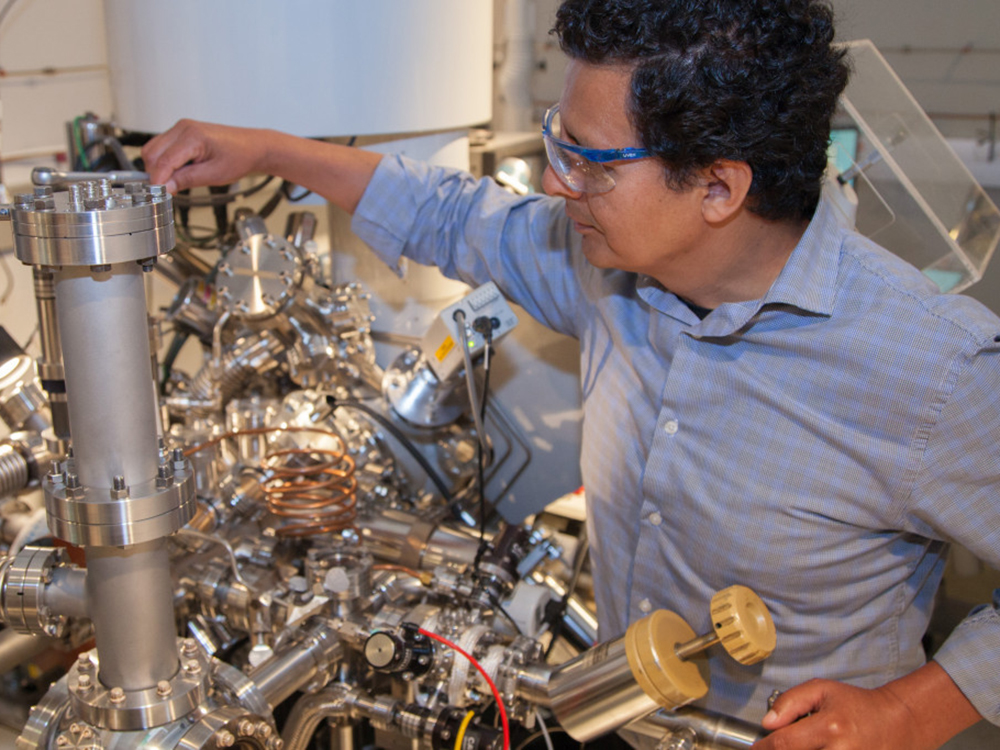
Core Faculty
TMI's core faculty lead cutting-edge research by running their grants through the institute, fostering collaboration and resource sharing.
Learn More
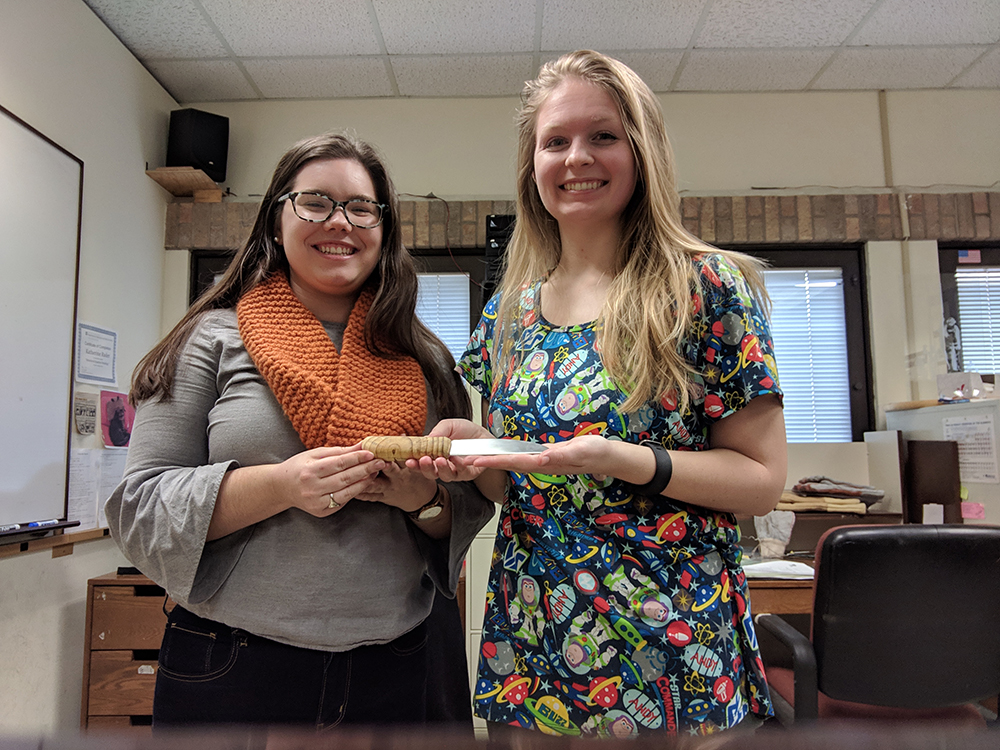
Graduate Program
Our Materials Science and Engineering program is one of the best in the nation, and our graduates go on to be leaders in their fields.
Learn More
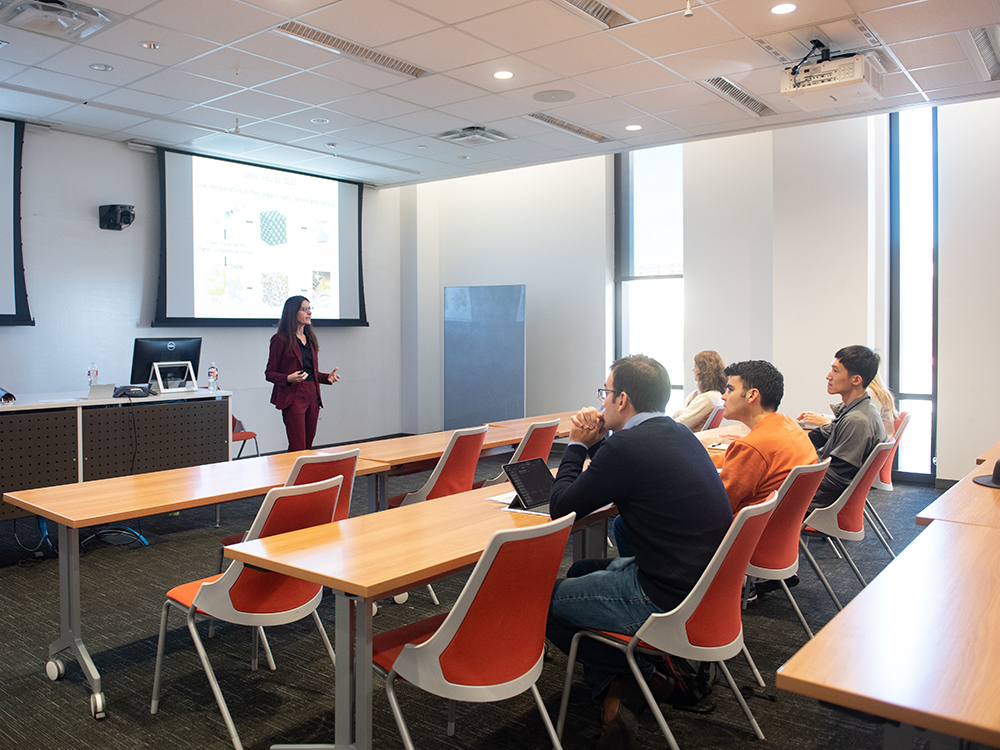
Research
TMI supports interdisciplinary research at UT Austin, with over 100 faculty focusing on clean energy, nanotechnology, and advanced materials using our state-of-the-art facilities.
Learn More
Home
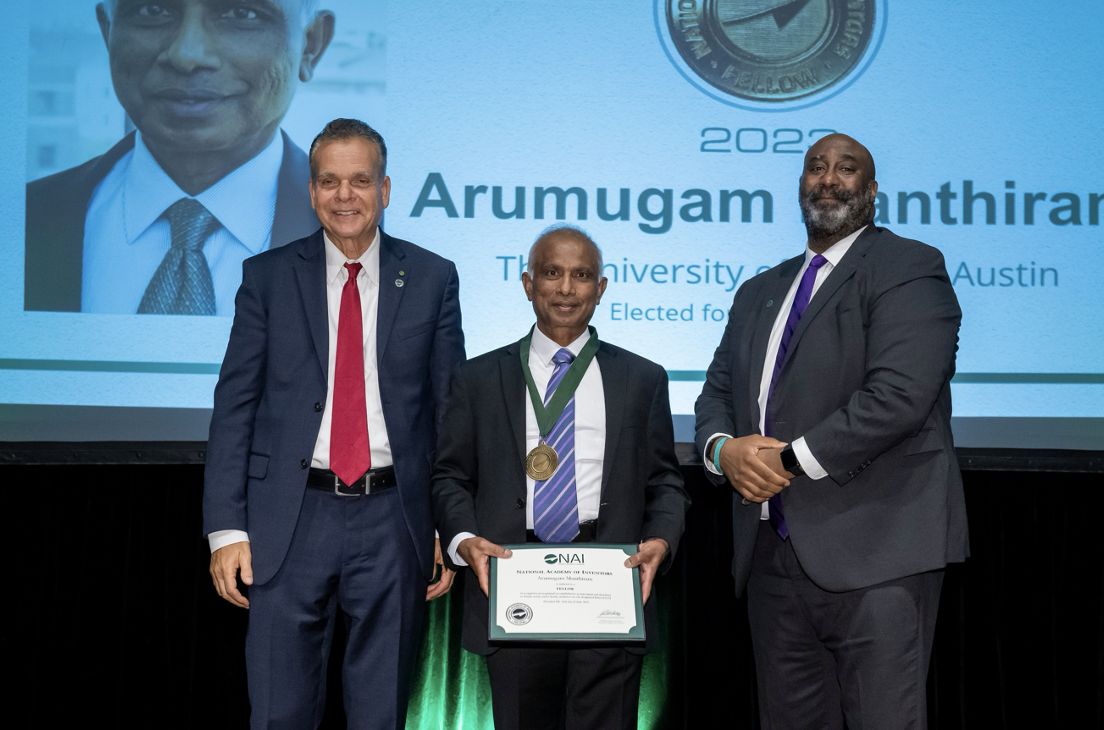
National Academy of Inventors Inductee 2024
In a significant recognition of his innovative contributions, Arumugam Manthiram, a distinguished faculty member of the Walker Department of Mechanical Engineering and the Texas Materials Institute at UT Austin, was elected as a Fellow of the National Academy of Inventors (NAI) in June 2024.
Deji Akinwande Wins DTRA Award for Quantum Biosensors
Professor Deji Akinwande from the Department of Electrical and Computer Engineering has been awarded a grant from the Defense Threat Reduction Agency (DTRA) to spearhead research titled "Quantum Coupled Field-Effect Biosensors for Diagnostics and Detection."
Yeram S. Touloukian Awarded to Li Shi
At the recently concluded 22nd Symposium on Thermophysical Properties, held in June 2024, Dr. Li Shi was recognized for his exceptional and sustained contributions to advancing the understanding of thermophysical properties in high-thermal conductivity materials and magnetic insulators.
#CLEO24 featured plenary speaker, Ray Chen
The Conference on Lasers and Electro-Optics (CLEO), renowned as the premier global platform for laser science, featured distinguished researchers unveiling cutting-edge advancements and insights early May 2024 at #CLEO24.
Page 29 of 47
Texas Materials Seminar Series
The Texas Materials Seminar Series features MSE 397 Seminars, TMI Distinguished Lectureships, and TMI Special Seminars, where leading faculty and professionals from around the world share cutting-edge innovations and advancements in materials engineering with our students.
Learn More
News
TMI Faculty Celebrated as Highly Cited Researchers in 2025

Seven faculty members who work with and in the Texas Materials Institute have been distinguished as Highly Cited Researchers for 2025 based on Clarivate's Web of Science Core Collection, a platform that provides reference and citation data from academic journals, conferences, and other documents across disciplines. Each Highly Cited Researcher has authored mulitple highly-cited papers and rank in the top 1% for their field and publication year.
Alexander Demkov elected as MRS Fellow

Dr. Alexander Demkov, a professor of Physics, an associate faculty member of the Oden Institute, and one of the Texas Materials Institute's Core Faculty, was elected as 1 of the 18 MRS Fellows for 2026.
MS&E Graduate Student Publishes on Connection Between Battery Use, Recharging, & Interface Flattening

Tushare Telmasre, a graduate student in the Materials Science & Engineering Program, has recently published an article in ECS Advances that explores the connection between battery usage, recharging, and the surface of the zinc anode. A student in Dr. Venkat Subramanian's lab, Telmasre, along with postdoctoral researcher Dr. Lubhani Mishra, and other UT researchers from the CMES Lab, the paper finds that how a battery is used and then recharged directly impacts the surface of the anode and dendrite growth.
AirGel Takes Top Prize and People’s Choice Award for Innovative Water-Harvesting Device

*Reposted from UT News*
Weixin Guan and Yaxuan Zhao, graduate researchers with the Texas Materials Institute and the Walker Department of Mechanical Engineering at UT’s Cockrell School of Engineering, were recognized for their innovative and cost-effective device, AirGel, which extracts drinking water from humidity in the air. Their invention also won the competition’s People’s Choice Award and received a USPTO Patent Acceleration Certificate from the U.S. Patent and Trademark Office.
$2.5 Million Grant Awarded to Deji Akinwande for Wearable Health Technology
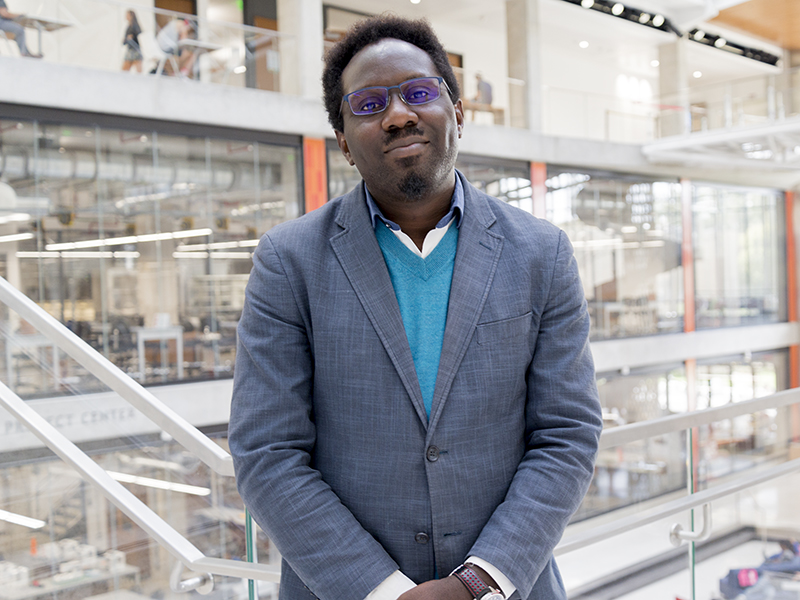
Dr. Deji Akinwande, a professor in Electrical and Computer Engineering department and an affiliate of TMI, was awarded a contract of up to $2.5 million from the Advanced Research Projects Agency for Health (ARPA-H), a governmental agency aimed at funding research that supports biomedical and health breakthroughs. This award will help advance Dr. Akinwande's development of a wearable blood pressure monitoring system, a key vital sign for assessing cardiovascular health.
$12M+
In Grant Funding
20+
Research Patents
10K+

